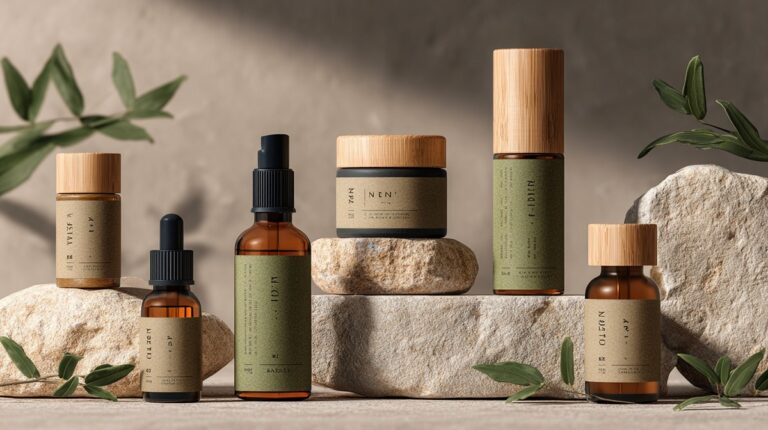Sustainability has moved from being a side note in the beauty industry to a deciding factor for millions of buyers. According to McKinsey & NielsenIQ, over 60% of consumers in 2024 said they would pay more for products with sustainable packaging, and nearly 70% actively look for recyclable or refillable options.
In skincare, this matters even more because daily-use products generate massive amounts of plastic waste.
A 2023 Zero Waste Week report estimated that the global beauty industry produces over 120 billion units of packaging every year, most of which ends up in landfills or oceans.
1. Ursa Major – The Plastic-Negative Brand
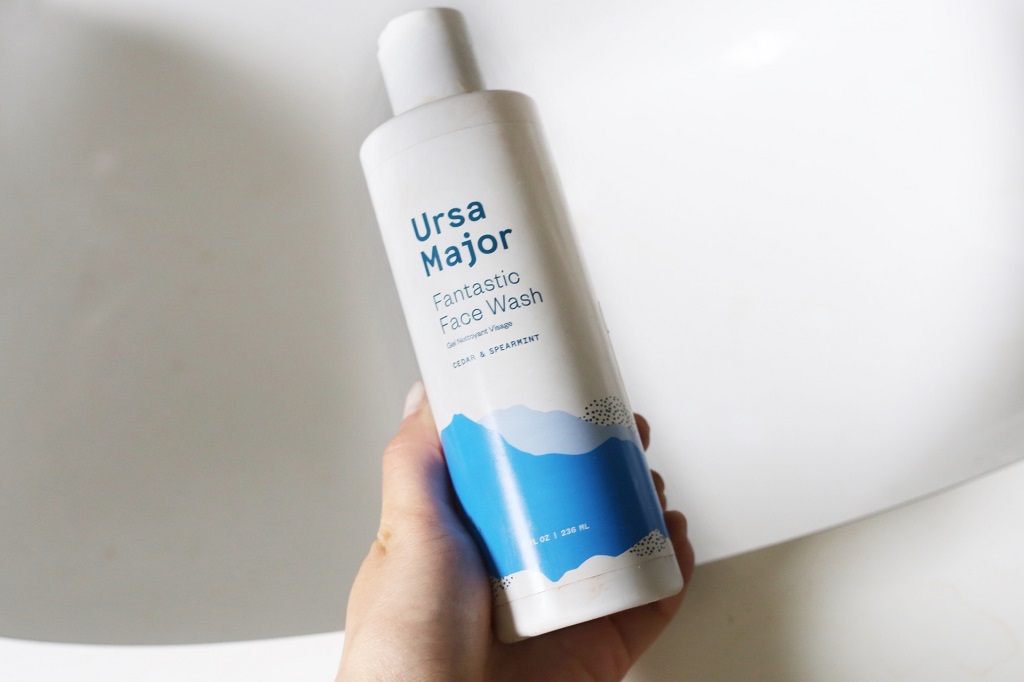
Ursa Major has built its reputation not just on clean, plant-powered formulas but also on its serious commitment to packaging sustainability. The company is a certified B Corporation, meaning it meets rigorous standards for social and environmental responsibility.
What makes Ursa Major unique is its plastic-negative status: for every product sold, the brand funds the removal of more plastic waste from the environment than it produces. This model has positioned them among the pioneers of responsible packaging in skincare.
Their bottles and caps are designed from recyclable materials, and the company operates a carbon-neutral headquarters in Vermont. In a 2024 report, Ursa Major revealed that their sustainability practices saved an estimated 40 tons of plastic from entering landfills and oceans annually.
Customers often praise the Fantastic Face Wash for its refreshing blend of natural surfactants, and their Vitamin C serum has quickly become a cult favorite among eco-minded beauty buyers.
| Brand | Packaging Type | Sustainability Highlight | Star Product | Price Range |
| Ursa Major | Recyclable bottles, caps | Plastic-negative, carbon-neutral office | Fantastic Face Wash | $18–$36 |
2. OSEA – Ocean-Inspired Sustainability
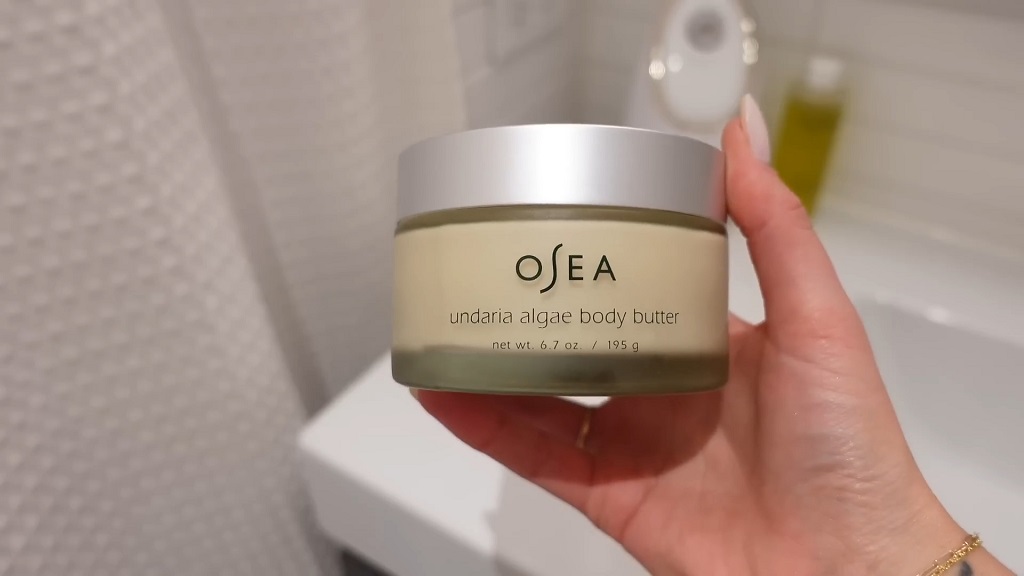
OSEA, founded in Malibu in the early 1990s, has always drawn inspiration from the ocean. The brand is climate-neutral certified and emphasizes both sustainability and luxury. Their packaging features glass jars and bottles, which significantly cut down on plastic waste.
In addition, the brand uses post-consumer recycled (PCR) materials, ensuring that even the small details, like caps and secondary packaging, align with their environmental mission.
Family-owned for more than three decades, OSEA sources seaweed and other marine-based ingredients sustainably, which pairs naturally with their eco-conscious packaging ethos. The brand has also been recognized in 2024 by the Sustainable Beauty Awards for its transparency and supply-chain practices.
Their Ocean Cleanser, a gentle daily face wash in a sleek glass bottle, is a best-seller that symbolizes how skincare can merge effectiveness with responsible packaging.
| Brand | Packaging Type | Sustainability Highlight | Star Product | Price Range |
| OSEA | Glass, PCR materials | Climate-neutral, cruelty-free | Ocean Cleanser | $18–$48 |
3. Ethique – Zero-Waste Beauty Bars
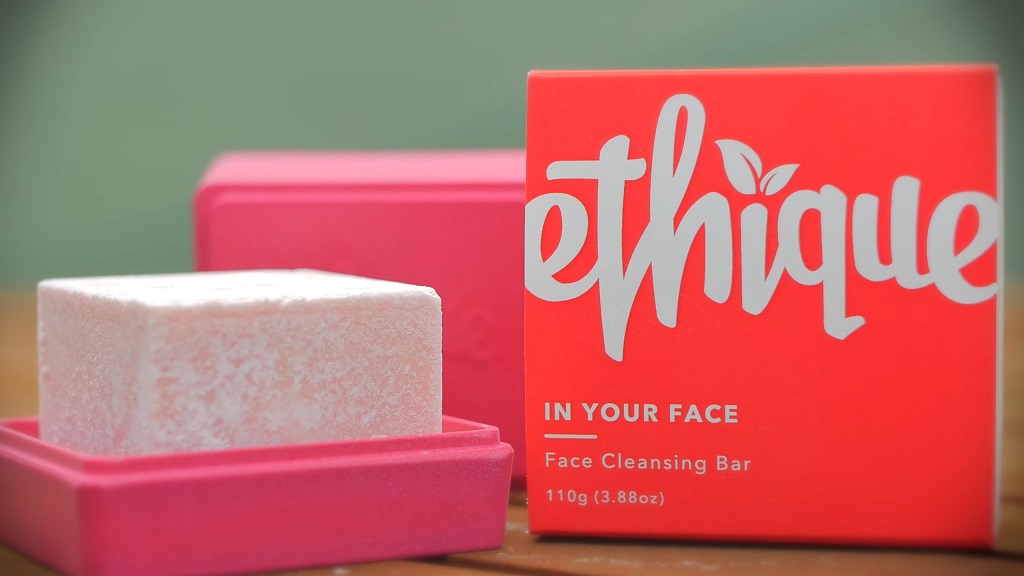
If there’s one brand synonymous with plastic-free skincare, it’s Ethique. Founded in New Zealand, the company is a pioneer in solid skincare and shampoo bars, all packaged in compostable cartons made from biodegradable paper.
By replacing bottled cleansers, moisturizers, and hair care products with solid bars, Ethique has achieved a measurable environmental impact: as of 2024, the brand reported preventing over 33 million plastic bottles from entering landfills.
Their Bliss Bar Face Cleanser is a standout product, offering gentle cleansing without a trace of packaging waste. Customers can literally compost the carton at home after use, leaving no footprint. Ethique’s approach demonstrates how packaging can go from being a long-term pollutant to an integral part of the sustainability solution.
| Brand | Packaging Type | Sustainability Highlight | Star Product | Price Range |
| Ethique | Compostable paper cartons | Zero-waste, plastic-free | Bliss Bar Face Cleanser | $12–$20 |
4. Herbivore Botanicals – Clean Ingredients, Clean Packaging
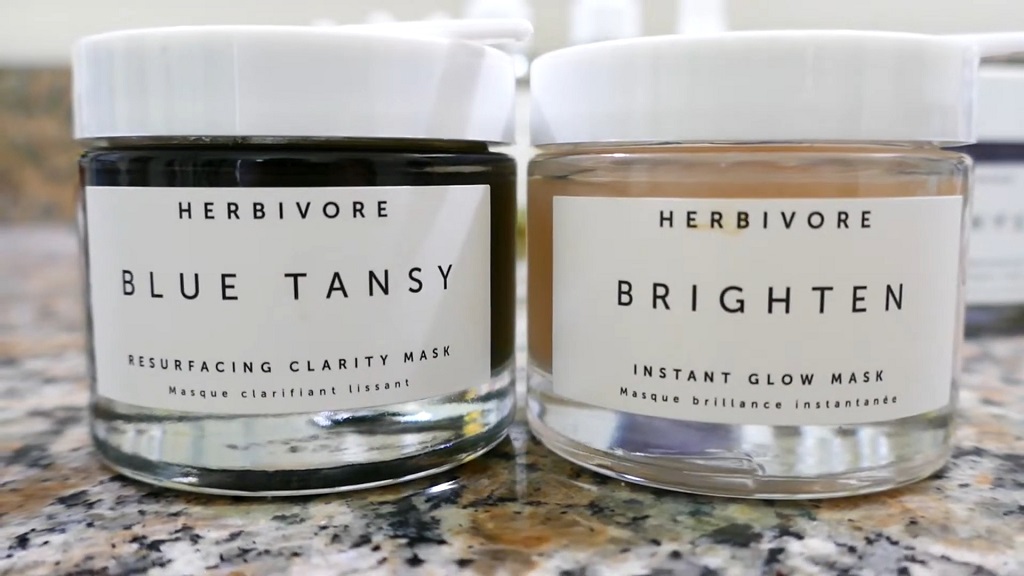
Herbivore Botanicals has become a recognizable name not only for its Instagram-worthy glass jars but also for its commitment to recyclable, minimalist packaging. Every product is designed to be 100% recyclable, with no unnecessary plastic or mixed materials that complicate the process.
Their skincare line is vegan and cruelty-free, and packaging is often repurposed by customers as home decor, showing its aesthetic appeal. In terms of sustainability, Herbivore has reduced secondary packaging by nearly 30% since 2023, minimizing cardboard and ink use.
The Pink Cloud Moisturizer, housed in a frosted glass jar, has been one of their most popular products, embodying the balance between elegance, functionality, and eco-consciousness.
| Brand | Packaging Type | Sustainability Highlight | Star Product | Price Range |
| Herbivore | Glass jars & bottles | Vegan, recyclable, cruelty-free | Pink Cloud Moisturizer | $28–$48 |
5. Innisfree – Leading in Upcycling and Recycling Programs
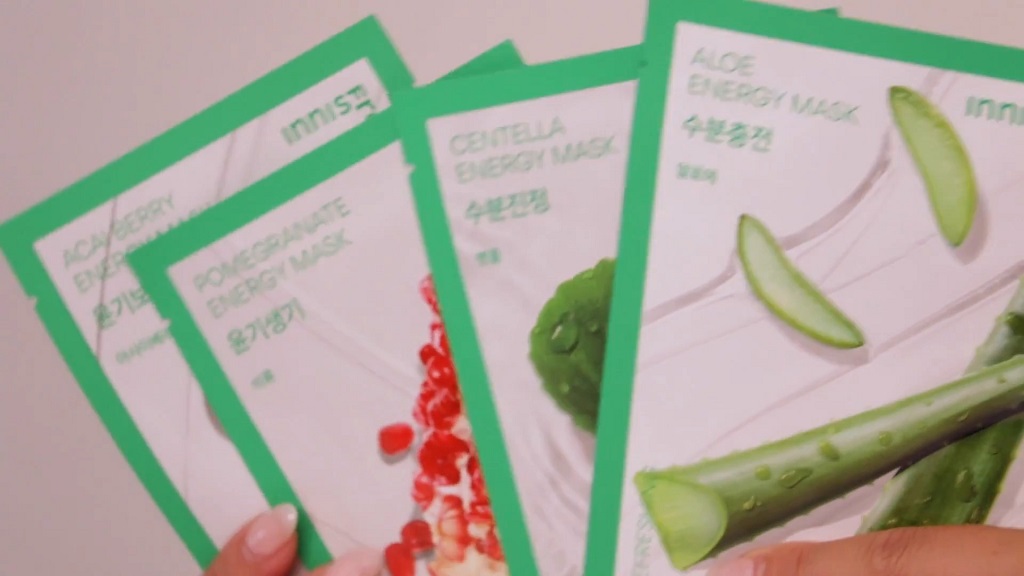
As one of South Korea’s most recognized skincare brands, Innisfree leads the industry in consumer recycling programs. Their Empty Bottle Collection campaign, running since 2003, has collected over 30 million used bottles from customers, which are then recycled or repurposed. In addition, Innisfree incorporates plant-derived plastics, recycled paper, and soy-based inks into its packaging.
The brand also experiments with upcycled materials: for instance, certain scrubs and packaging components are created from discarded coffee grounds and green tea by-products. This approach to circular beauty has made Innisfree a favorite among eco-conscious K-beauty fans.
Their Green Tea Seed Serum remains a global bestseller, combining hydration with a lower environmental impact.
| Brand | Packaging Type | Sustainability Highlight | Star Product | Price Range |
| Innisfree | Recycled & upcycled packaging | Bottle return program, upcycling | Green Tea Seed Serum | $22–$32 |
6. Weleda – The Heritage Sustainability Pioneer
Few skincare companies can claim a century-long commitment to sustainability, but Weleda has done just that. Established in 1921, the brand practices biodynamic farming and fair-trade ingredient sourcing. Their packaging is largely recyclable aluminum and glass, and for harder-to-recycle components, Weleda partners with TerraCycle.
In 2024, Weleda was highlighted in the Global Organic Beauty Report as one of the top five heritage brands that successfully transitioned into modern sustainability standards without losing authenticity. Their Skin Food Original, packaged in aluminum tubes, is an iconic multi-purpose cream loved for its effectiveness as much as for its minimal-waste design.
Sometimes, however, consumers are looking for more targeted solutions, especially when dealing with stubborn skin conditions like eczema.
In that case, formulas specifically designed to calm irritation can make a big difference, and exploring an effective eczema cream alongside sustainable everyday products ensures that eco-conscious buyers do not have to compromise on results while still supporting responsible packaging choices.
| Brand | Packaging Type | Sustainability Highlight | Star Product | Price Range |
| Weleda | Recyclable aluminum/glass | TerraCycle partner, fair sourcing | Skin Food Original | $14–$24 |
7. Hada Labo – Refillable Japanese Innovation
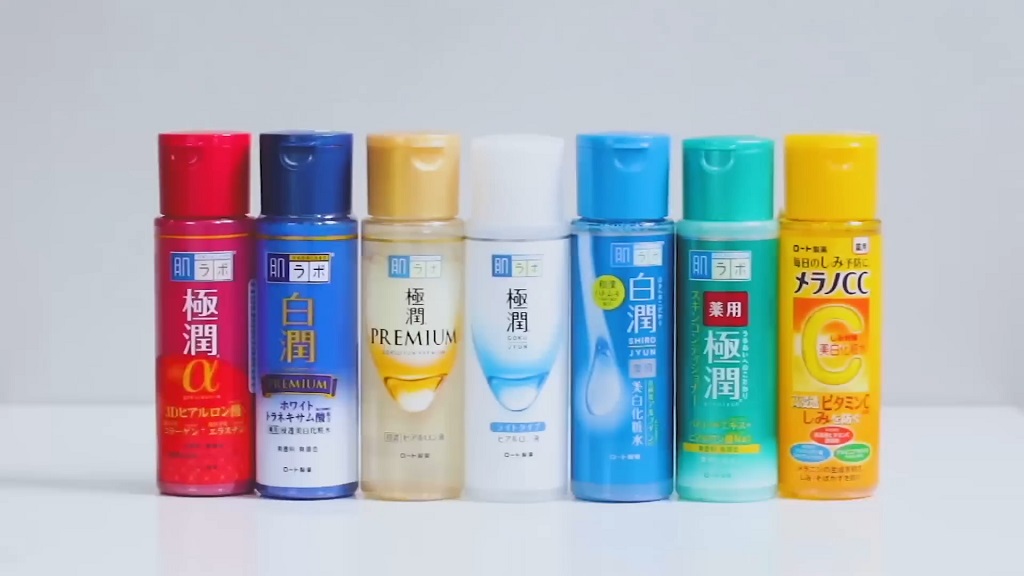
Hada Labo, one of Japan’s most popular skincare brands, has taken a practical approach to packaging by introducing refill pouches for many of its moisturizers and cleansers. These pouches use significantly less plastic,reducing packaging material by up to 60% compared to buying a new bottle.
In addition, Hada Labo has been experimenting with plant-derived plastics, signaling an effort to reduce reliance on petroleum-based packaging altogether.
Their Gokujyun Hyaluronic Lotion, which comes in a refillable system, is a household staple across Asia and increasingly popular globally.
By making sustainability convenient and affordable, Hada Labo has shown that large-scale brands can drive eco-friendly adoption without alienating everyday buyers.
| Brand | Packaging Type | Sustainability Highlight | Star Product | Price Range |
| Hada Labo | Refill pouches | Plant-derived materials | Gokujyun Hyaluronic Lotion | $15–$25 |
Packaging Trends That Will Define Skincare in 2025
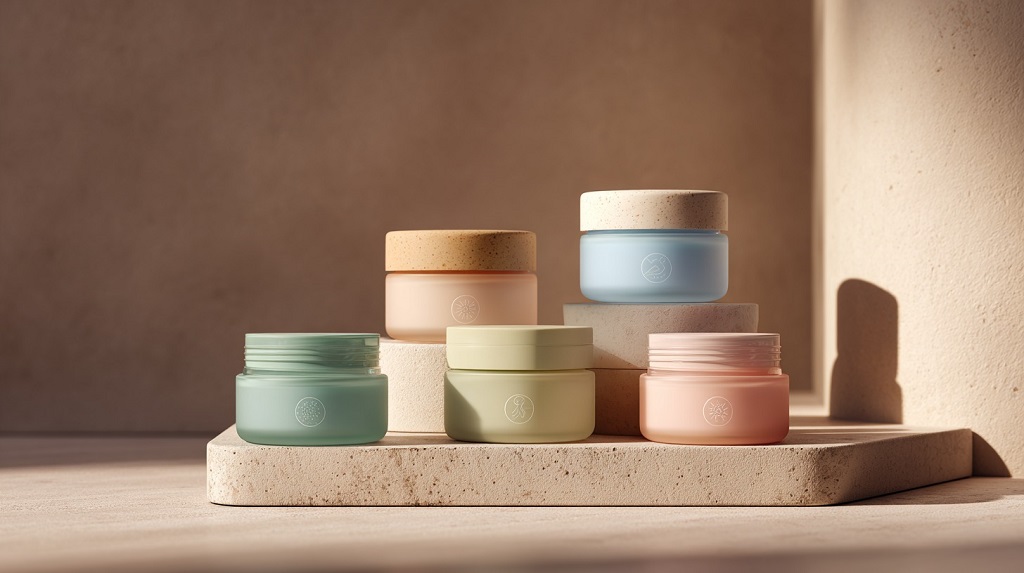
According to Meyers Packaging Report (2025):
- Refills and reusable packaging could lower CO₂ emissions from cosmetics packaging by up to 85% compared to single-use plastics.
- Consumers under 35 are 2x more likely than older generations to choose eco-friendly packaging, showing this is more than a passing trend.
- Innovations like seaweed-based films and mushroom packaging are entering commercial beauty packaging by 2026.
How to Choose the Right Eco-Friendly Skincare for You
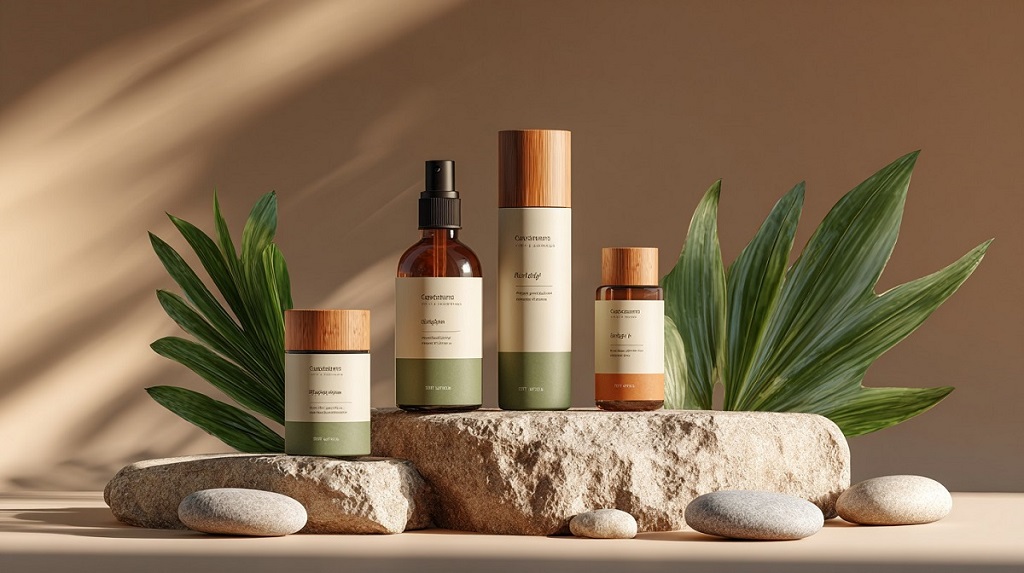
| Priority | Best Choice | Why It Works |
| Want zero plastic | Ethique | Compostable, no bottles |
| Want refills | Hada Labo | Refill pouches save 60% plastic |
| Want a luxury feel | Herbivore / OSEA | Glass packaging, aesthetic and recyclable |
| On a budget | Attitude / Weleda | Affordable yet sustainable |
| Support local programs | Innisfree | Bottle collection & upcycling |
Conclusion
The shift toward eco-friendly skincare packaging is more than a passing movement—it’s a reflection of how consumers, especially younger generations, are reshaping the beauty industry.
Choosing brands like Ursa Major, OSEA, or Ethique doesn’t just mean getting a cleanser or moisturizer; it means actively reducing waste, supporting refill systems, and encouraging companies to stay accountable for their environmental impact.
According to the European Environment Agency, switching to recyclable and refillable packaging in personal care products could reduce packaging-related emissions in Europe by nearly 30% over the next decade. That is a measurable difference that starts with what each of us puts in our bathroom cabinet.

